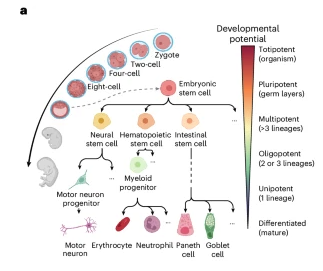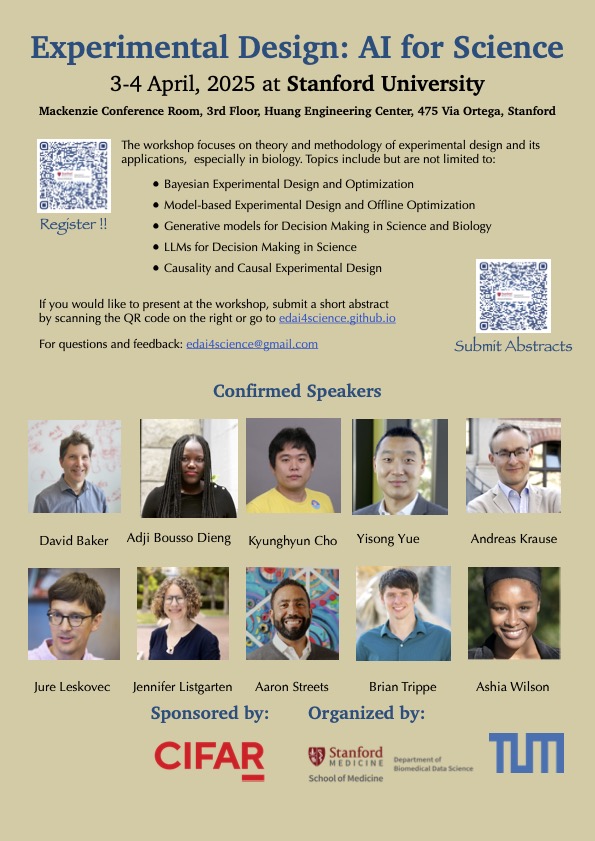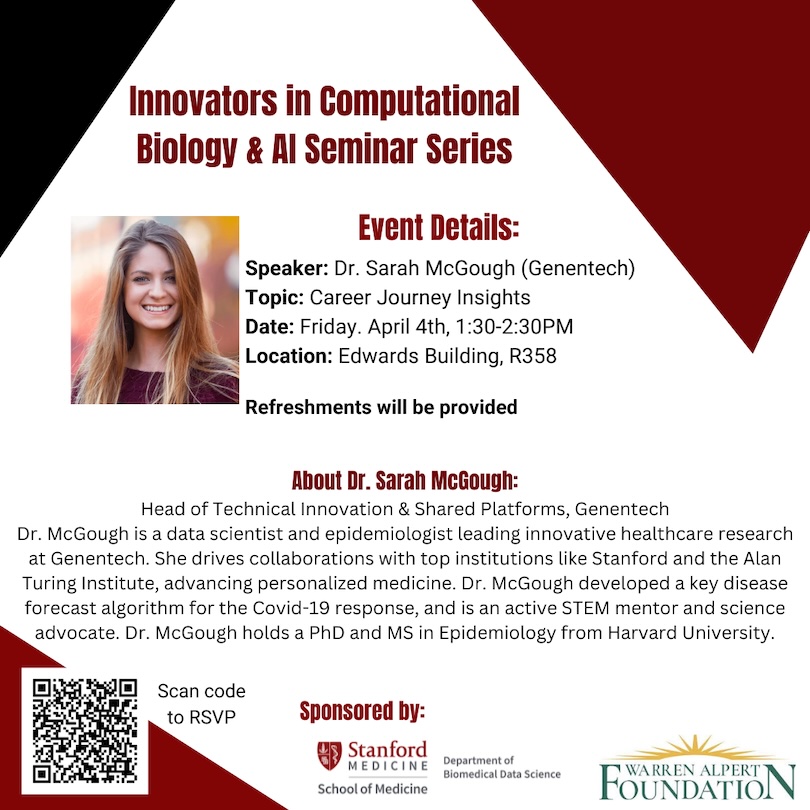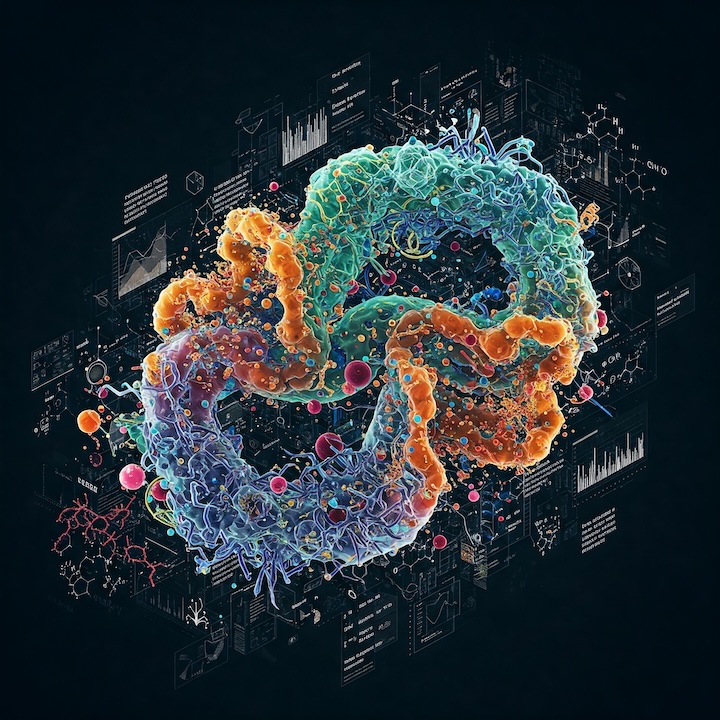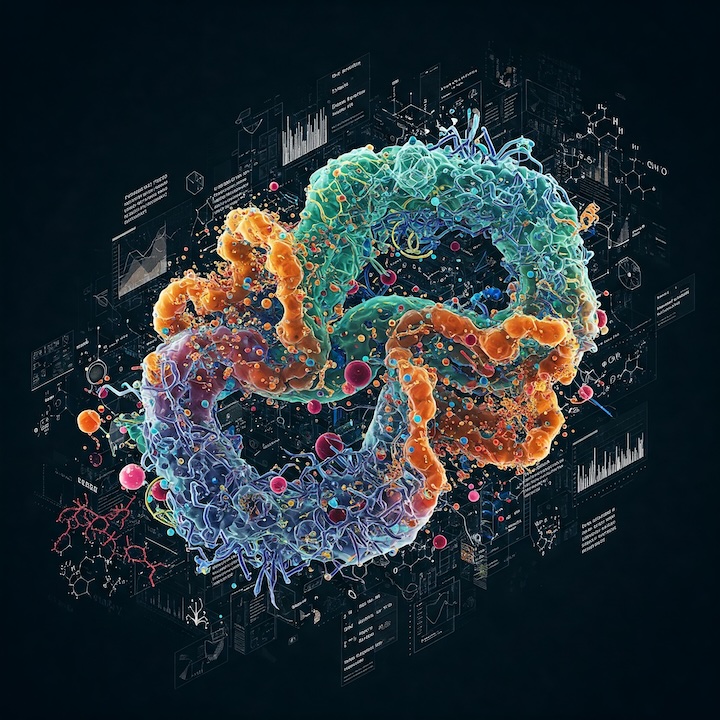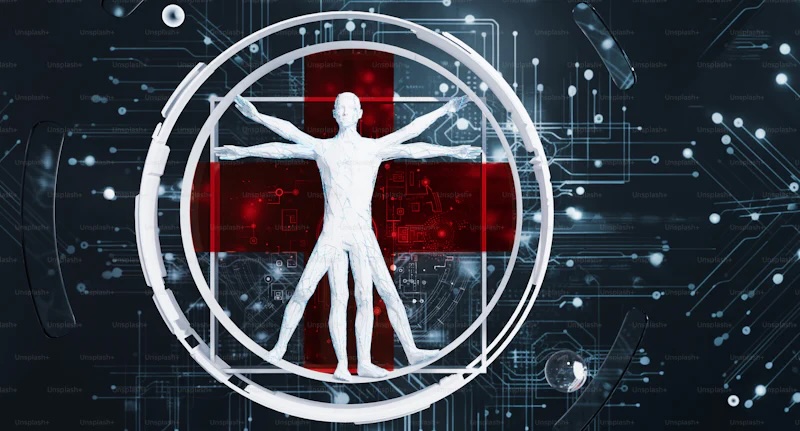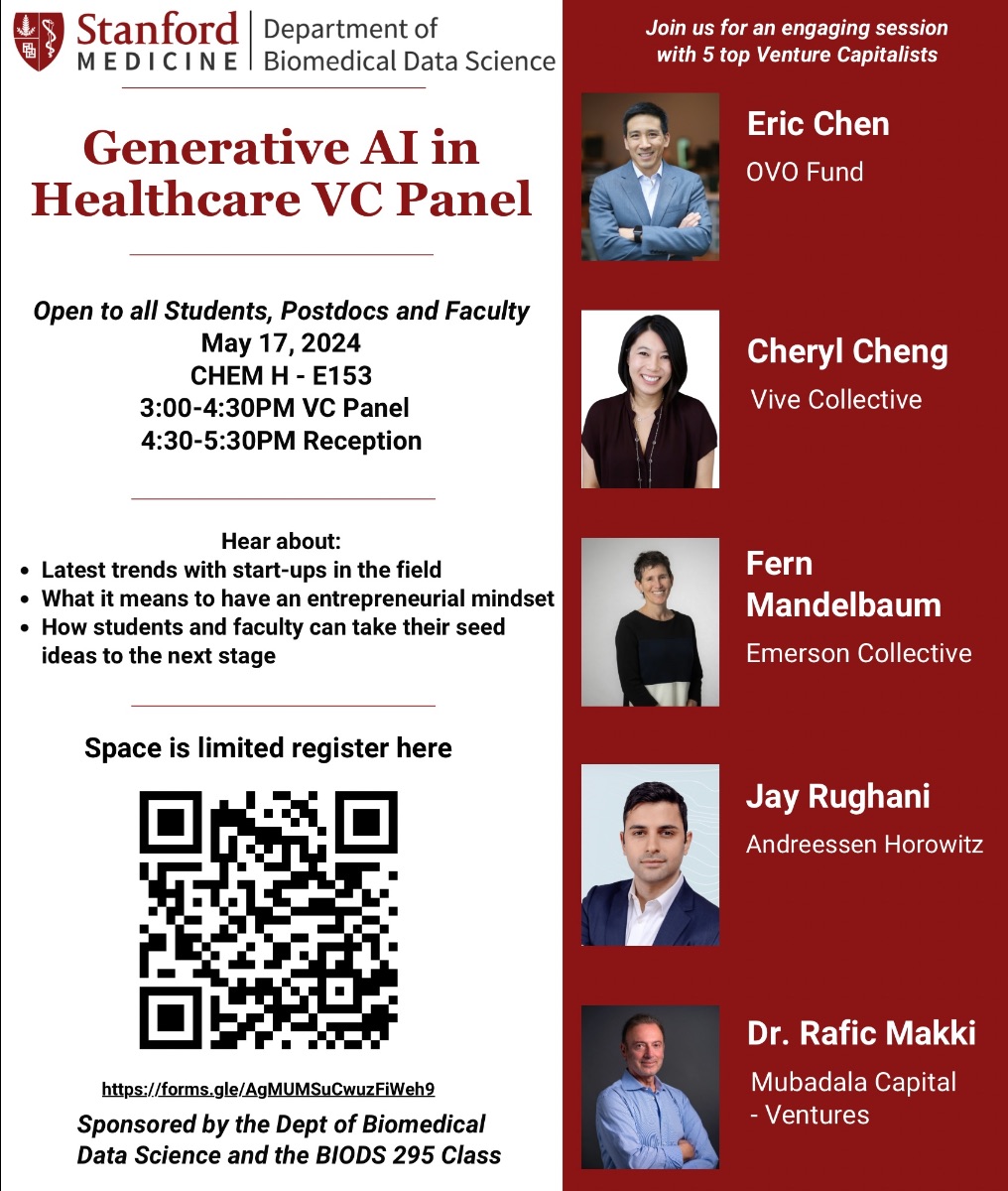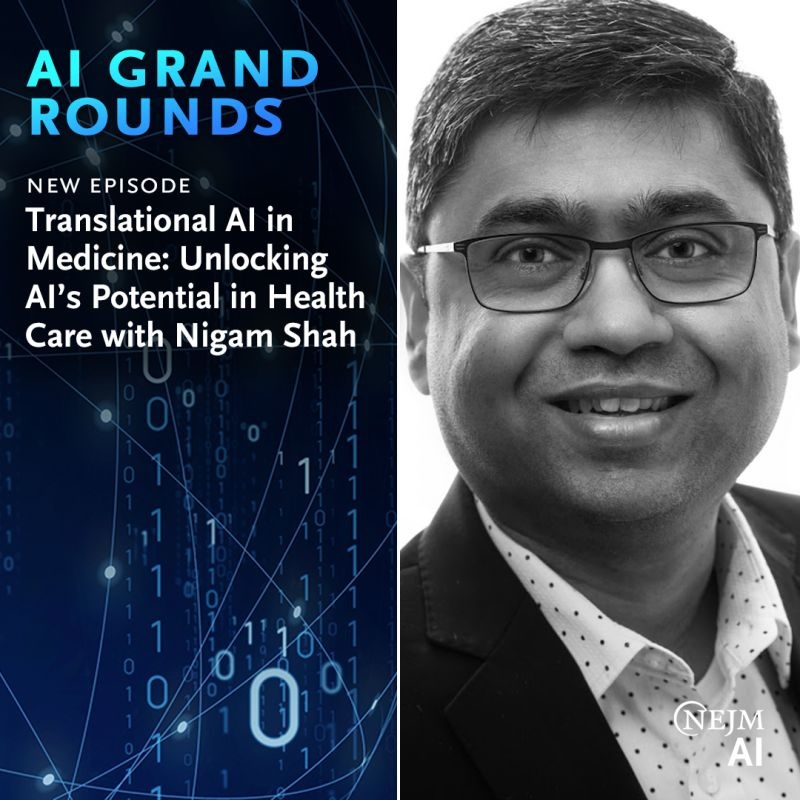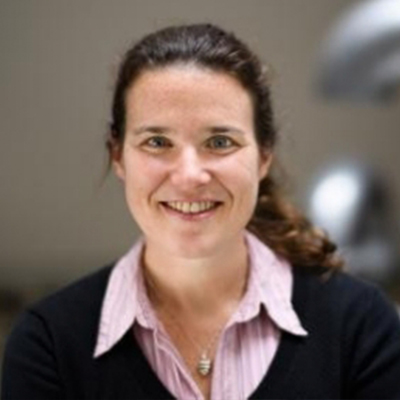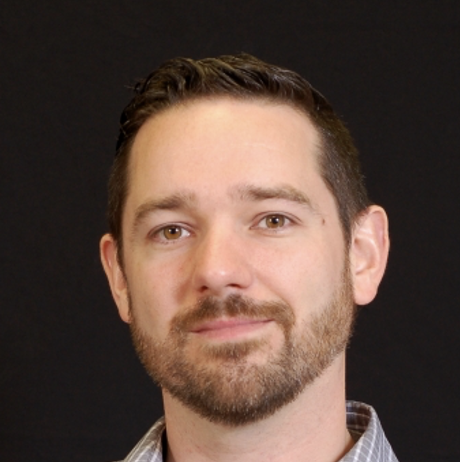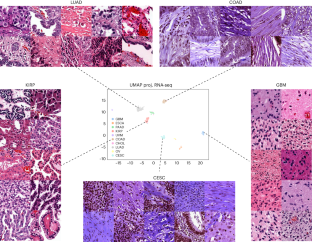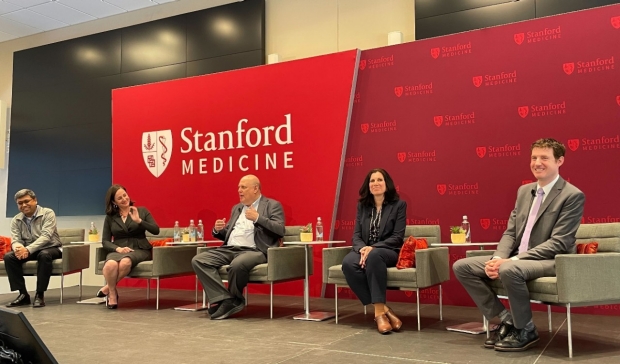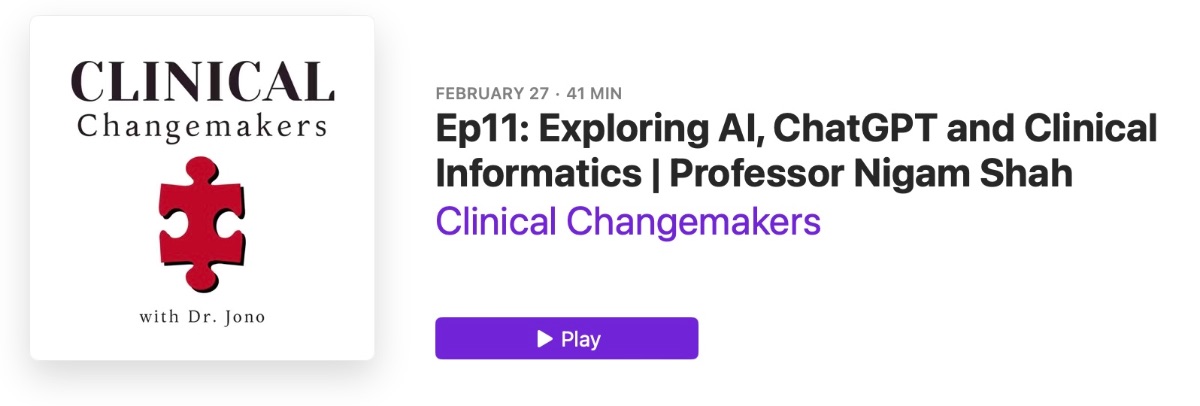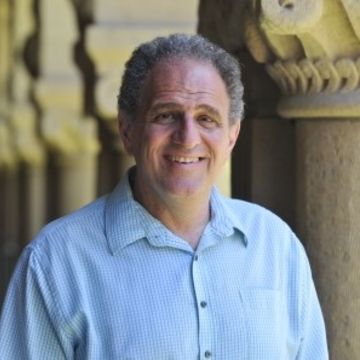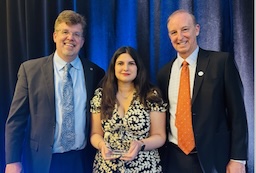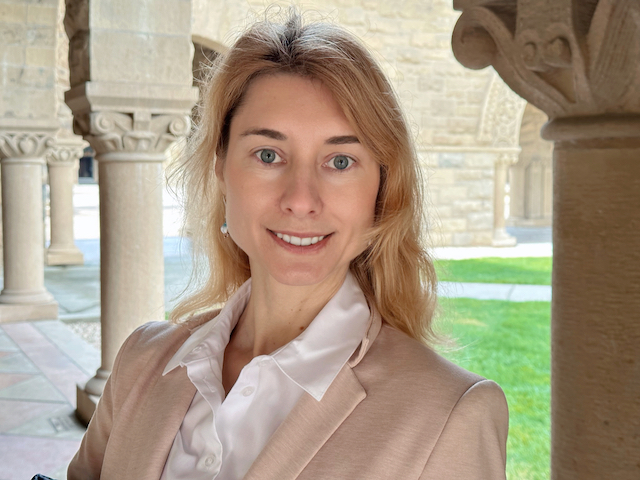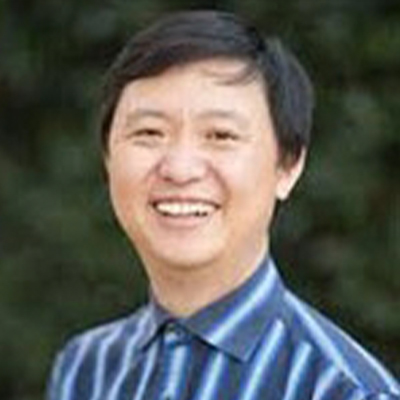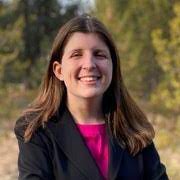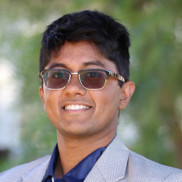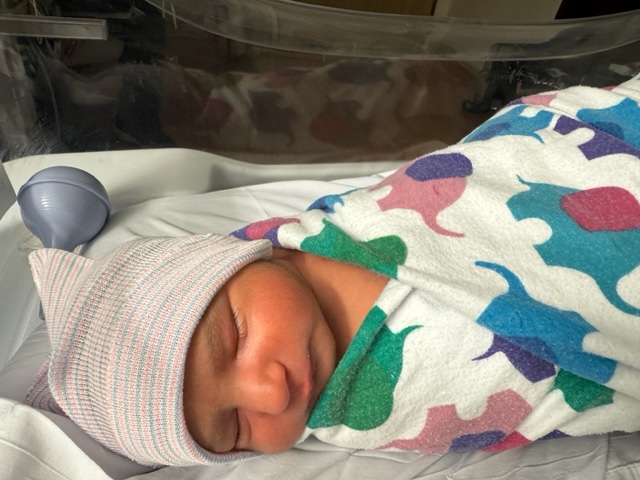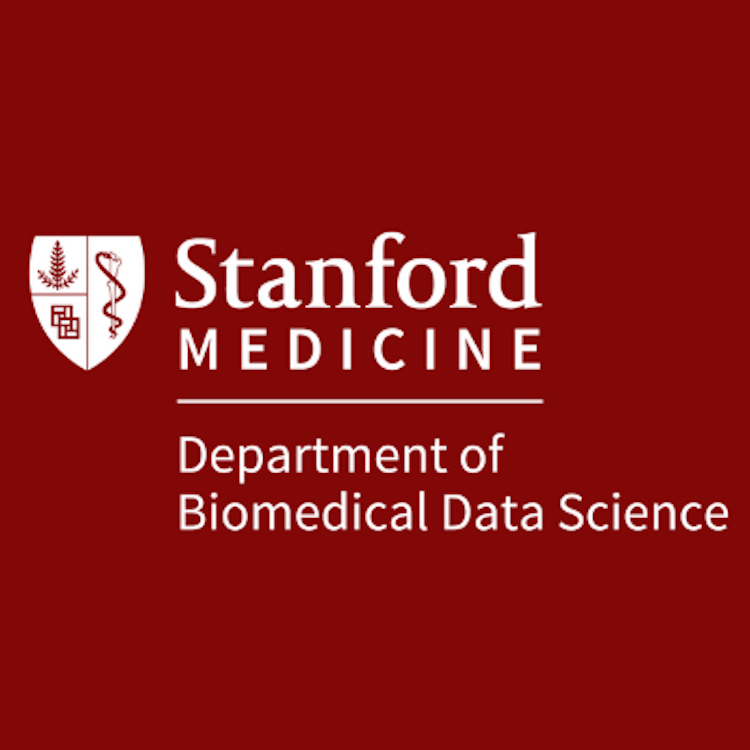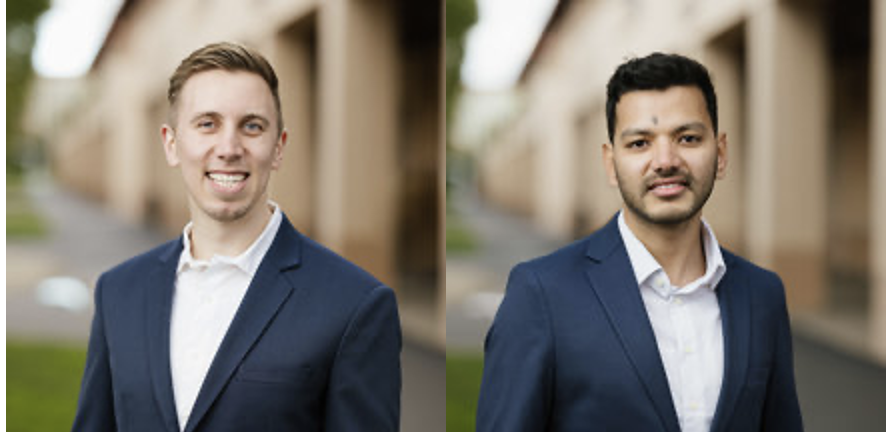🎉 We would like to congratulate the 2025 winners of the DBDS Administrative Staff Recognition Awards presented at Wednesday night’s annual holiday party!
Trevor Hastie & Rob Tibshirani (along with Sourav Chatterjee) have just published a new paper “Univariate-guided sparse regression” where they present a new statistical tool called “uniLasso” that improves how we build predictive models from data.
The first Executive AI Summit on Healthcare and Medicine was held by Stanford’s Biomedical Data Science Department and Accenture on April 8,
Tanveer Syeda-Mahmood has been selected to receive the 2025 EMBS Professional Career Achievement Award “for outstanding technical achievement and leadership in multimodal decision support with lasting impact to academia/industry in multimodal healthcare AI.”
The award is given annually “for outstanding contributions advancing Biomedical Engineering and its professional practices as a practicing biomedical engineer working in industry,
Congratulations to Serena Yeung-Levy, Alejandro Lozano, Minwoo Sun, Jeff Nirschl, and James Burguess on receiving an NVIDIA Academic Grant in support of BioMed-MLLM: A Family of Open Multi-modal Large Language Models for Biomedicine.
Tumor boards are “high-stakes, high-cost meetings for high-risk patients,” says Timothy Keyes, a data scientist at Stanford Health Care and a combined MD and PhD candidate in cancer biology and biomedical informatics at Stanford University School of Medicine.
Mark Musen received the Lifetime Achievement Award at the 2025 Knowledge Graph Conference last week in New York.
In the above photo,
The DBDS Education Committee undertook a “Curriculum Review Project” that culminated in a published review about graduate curriculum in Biomedical Data Science.
In an rousing event that connected industry leaders from biopharma, consulting, tech, and start-up companies with Stanford faculty, postdocs, and students from the Department of Biomedical Data Science (DBDS),
More than three-quarters of the AI software cleared by the Food and Drug Administration for medical use is designed to support radiology practice,
We are excited to announce the opening registration website for the 8th Stat4Onc Annual Symposium, which will take place May 16-17,
We’re excited to announce DBDS OPEN HOUSE 2025 – and we’d love for you to join us!
Date: May 6,
Only Weeks Away – Don’t Miss Out! Registration Filling Fast!
We are excited to invite you to the workshop “Experimental Design: AI for Science” happening at Stanford University on 3rd and 4th April 2025.
MedArena is a free platform for clinicians to use and compare how frontier LLMs work on medical queries.
Check it out at: https://medarena.ai/login
We are excited to introduce a new seminar series – “Innovators in Computational Biology & AI,” sponsored by the Warren Alpert CBAI Scholars Program.
We are thrilled to announce that the Warren Alpert Computational Biology & Artificial Intelligence ( WA CBAI) Scholars Program in the Department of Biomedical Data Science at Stanford is recruiting its second cohort of scholars for the 2025-2026 academic year.
BIOCOMPUTING 2025 – PROCEEDINGS OF THE PACIFIC SYMPOSIUM (https://doi.org/10.1142/14153), edited by Teri E. Klein, Russ Altman and Tiffany Murray has recently been published.
DBDS’ James Zou awarded Overton Prize
Awarded by ISCB, the prize recognizes the research, education, and service accomplishments of early to mid-career scientists who are emerging leaders in computational biology.
DBDS Student Talks (BIOMEDIN 201) Winter Quarter 2024-25 in Alway M114/ZOOM. Lunch will be provided for the talks.
Upcoming 2/24 Monday Talk Speakers:
DATE 12:15-12:45 12:45-1:15 2/24/2025 Bedi,“This is a new era for us,” Chair of the Department of Biomedical Data Science Sylvia Plevritis began, opening the third annual Collaboration &
Warren Alpert Computational Biology & Artificial Intelligence Scholars Program recruiting new cohort
The Warren Alpert Computational Biology & Artificial Intelligence Scholars Program in the Department of Biomedical Data Science at Stanford is recruiting its second cohort of scholars for the 2025-2026 academic year.
Serena Yeung-Levy and family are thrilled to announce the birth of Kyra Laurence Yien Levy (above) on January 29. Mom and baby are both doing well and the Yeung-Levys are enjoying getting to know their new daughter.
Doctors are using AI. Will it make healtchcare better or break it?
Millions are already being treated by doctors using artificial intelligence to take notes and draft emails to patients.
This event aims to connect leaders from various sectors with our faculty, students, and staff to discuss advancements in AI,
Dr. Teri Klein has been appointed as the new Associate Chair of Faculty Affairs for the Department of Biomedical Data Science,
An award of up to $8.9 million from The Advanced Research Projects Agency for Health (ARPA-H) to the Stanford Department of Biomedical Data Science (DBDS) will fund Stanford researchers in the development of AI-augmented support tools for cancer tumor boards.
The focus: integrating AI into the data scientist’s workflow, discuss challenges and solutions, implications for the next generation, where we would address how the field is/should be evolving,
We are delighted to announce that Dr. Aaron Newman has been promoted to the role of Associate Professor of Biomedical Data Science.
Leslie (M.S. student) and Cally (M.S. student) each had their research accepted for presentation at ABRCMS (Annual Biomedical Research Conference for Minoritized Scientists) in Pittsburgh,
RNA secondary and tertiary structure is critically involved in ribozyme and ribosomal rRNA function, as well as viral and cellular regulation.
The SPLASH2 paper from the Salzman Lab was published online in Nature Biotechnology:
Title: Scalable and unsupervised discovery from raw sequencing reads using SPLASH2
Link: https://www.nature.com/articles/s41587-024-02381-2
·Authors:
- Marek Kokot*,
DBDS Student Talks (BIOMEDIN 201)
Professor Curt Langlotz has been appointed Senior Associate Vice Provost for Research at Stanford University, effective August 1, 2024. He will work in the office of the Vice Provost and Dean of Research,
Erin Craig, 6th Year PhD Student
(12:15pm-12:45pm)
Title: MMIL: A novel algorithm for disease associated cell type discovery
Abstract: Single-cell datasets often lack individual cell labels,
You’re invited to attend a VC panel on Generative AI and Healthcare on May 17th at 3:00PM. The panel will feature 5 Venture Capitalists and will focus on the latest trends,
In this episode of the AI Grand Rounds podcast, Dr. Nigam Shah, a distinguished Professor of Medicine at Stanford University and inaugural Chief Data Scientist for Stanford Health Care,
Congratulations to Sohaib Hassan, Elana Simon and Selina Junyi Pi who were all awarded the NSF Graduate Research Fellowship Program (GRFP).
Speaker: Barbara Engelhardt, PhD.
Title: Machine learning methods to identify tumor-immune microenvironments in spatial transcriptomics tumor data.
May 17,
You’re invited to attend a VC panel on Generative AI and Healthcare on May 17th at 3:00PM. The panel will feature 5 Venture Capitalists and will focus on the latest trends,
Please join us at the next monthly CCSB Seminar, Friday, April 19, from 11 AM to 12 PM.
Congratulations to Sylvia on leading the Biomedical Data Science department for the past five years. With her strong leadership, direction,
Leaders of Stanford Medicine discuss artificial intelligence in health and medicine; its usefulness in research, education and patient care; and how to responsibly integrate the technology.
Understanding the genetic factors that underlie the normal variation in cardiac anatomy is of great interest. In this study, Rodrigo Bonazzola et al.
Professor Nigam Shah shares his early experiences with AI, called ‘application of reasoning’, how this has evolved, and how AI and web applications like ChatGPT have changed the landscape of how AI is being used.
A new $5 million grant from the Warren Alpert Foundation was recently awarded to the Department of Biomedical Data Science (DBDS) at the Stanford School of Medicine.
DBDS’ Rob Tibshirani is the recipient of the 2024 Senior Leo Breiman Award from the Statistical Learning and Data Science Section of the American Statistical Association for outstanding contributions to the statistical learning,
StanfordMed LIVE: The State of AI in Health and Medicine
Join StanfordMed LIVE for this special panel discussion on the state of AI in health and medicine on March 18,
DBDS’ Roxana Daneshjou was selected as 2024 recipient of the American Academy of Dermatology Young Investigator Award for her significant research advances in the science and practice of dermatology.
DBDS’ Lu Tian will deliver the inaugural keynote Lai Lecture on 3/8 in the 7th International Symposium on Statistical Innovation for Medical Product Development honoring late Tze L.
Date: 2/15/24
Speaker: Yuzhe Yang
Title: Learning to Assess Chronic Diseases: Early Diagnosis,
A recently published paper, “Guiding Principles to Address the Impact of Algorithm Bias on Racial and Ethnic Disparities in Health and Health Care,” of which Tina Hernandez-Boussard,
Date: 2/8/24
Speaker: Emma Pierson
Title: Methods for missing outcomes
in healthcare and public health
More info here
Congratulations to Laurel Stell!!!
Stanford School of Medicine HRG selected our Laurel Stell in 2024 Cohort for BetterUp Coaching Program.
Stanford Medicine is committed to being digitally driven, adopting cutting-edge technologies that advance our missions of research,
HANNAH WAYMENT-STEELE, PhD, BRANDEIS UNIVERSITY
Monday, February 5, 2024
3-4 PM
ChEM-H / Neuro Research
Complex,
Dear DBDS Faculty,
I am pleased to announce that Teri Klein is the receipt of the 2024 Precision Medicine World Conference (PMWC) Luminary Award.
Date: 1/25/24
Time: 1:30-3 pm
Daniel Mukasa
Title: Computationally Design of Wearable Chemical Sensors for Personalized Healthcare
More info here
Date: 1/18/24
Adit Radhakrishnan
Title: How do neural networks learn features from data?
1:30-3:00 pm in MSOB x303
More info here.
We are thrilled to announce that James Zou has been promoted to DBDS Associate Professor with tenure. A hearty congratulations and thanks for his endless hard work,
Welcome Oliver Ferydoon Azizi and congratulations to Roxana Daneshjou and family!
Oliver was a wee bit early, but he and Roxana are doing very well.
Mark Musen, Professor of Biomedical Data Science and Director of the Stanford Center for Biomedical Informatics Research, received the degree of Doctor honoris causa from the University of Fribourg (Switzerland) in a ceremony on November 15,
Kevin Wu
Wednesday, November 8th, 2023
2:00 pm – 3:00 pm PST
CCSR 0235
Zoom Link: https://stanford.zoom.us/j/95984592133?pwd=MDRXcyt4eTlCVlZhdHZYZ0prLzBGZz09
Title: Medical AI After Deployment: Data-driven analyses and methods for clinically viable AI
Abstract: Medical AI algorithms have undergone significant development and regulatory approval,
Work type: University Tenure Line
Location: Stanford University
Categories: School of Medicine
The Department of Biomedical Data Science (DBDS) at Stanford University seeks two faculty members to join the Department as Assistant Professors on the University Tenure Line.
The DBDS administration is a team-first organization that is interdependent on its members to meet the demands of all faculty and students.
The scholars in the 2023 cohort come from 29 countries, including the first scholars from Hungary, Malawi, the Netherlands, Russia,
Dear Faculty, Trainees and Staff,
On September 1, 2023, the Biomedical Informatics (BMI) training program will finalize its last step in merging with the Department of Biomedical Data Science (DBDS) and formally change its name to the Biomedical Data Science training program.
We are delighted to announce that DBDS faculty researcher Daniel Rubin has been invited to participate in cohort 5 of the Stanford Medicine Leadership Academy (SMLA).
DBDS researchers Ruishan Liu (first author, pictured here), Ying Lu, James Zou and colleagues have been named recipients of a 2022 Top Ten Clinical Research Achievement Award,
Ying Lu [pictured here], together with visiting scholar Ruben van Eijk and Tze Lai and Lu Tian of the Department of Biomedical Data Science and the Center for Innovative Study Design,
DBDS faculty researcher Teri Klein is one of “Nine researchers from Stanford University and the SLAC National Accelerator Laboratory [who] have been named Fellows of the American Association for the Advancement of Science (AAAS).
DBDS faculty researchers Aaron Newman, Serena Yeung, and James Zou have been selected to join the second cohort of scientists to be named Chan Zuckerberg Biohub Investigators following a competition for individual awards.


